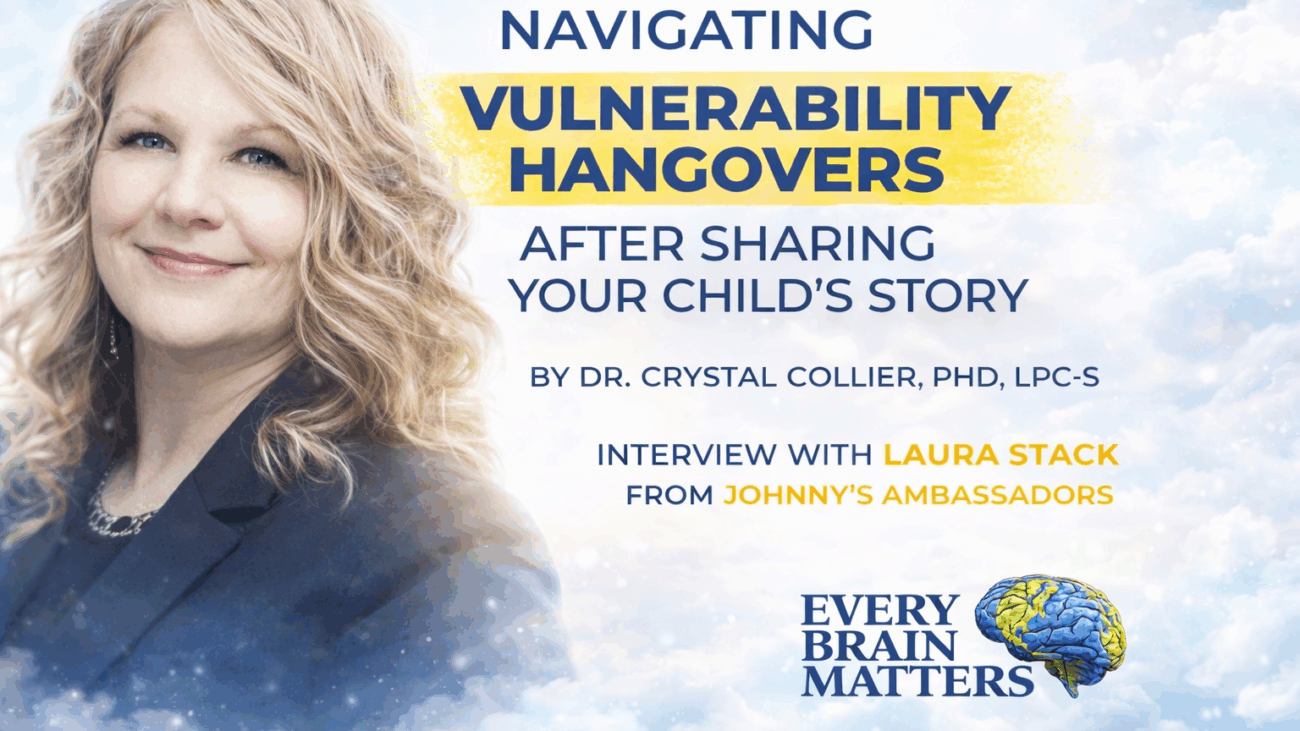Posted on May 7, 2025 View all news
by Crystal Collier, PhD, LPC-S
Know Your Neuro Prevention Program
Sharing your child’s mental health struggles, or the loss of their life due to drug use, overdose, or suicide, requires immense courage and love. While it can honor their memory and serve as a cautionary tale for others, it often triggers a wave of complex emotions known as a vulnerability hangover—a deeply uncomfortable but common experience.
Understanding Vulnerability Hangovers
After sharing such personal stories, parents or caregivers may hope for healing and empowerment but instead face overwhelming feelings of shame, regret, or unease. Vulnerability hangovers can be deflating. This emotional fallout can lead to self-doubt and a desire to shut down. Recognizing these feelings as part of the process is essential for building resilience. Symptoms of vulnerability hangovers may include:
- Fear of judgment regarding parenting choices.
- Intense shame or regret tied to feelings of failure.
- Ruminating over whether too much was shared or revisiting “what if” scenarios.
- Isolation or withdrawal from others due to emotional exposure.
Why Sharing Your Story Matters
Most people never hear about all the sleepless nights, fear of ‘the’ phone calls, treatment centers, disheartening relapses, and family disruptions. Despite the discomfort, sharing your experiences remains vital. It achieves several critical goals:
- Raising Awareness: It alerts others to the dangers modern youth face, such as easy access to potent substances through social media.
- Educating and Saving Lives: Vulnerability fosters connection, breaks stigma, and empowers families to act early in addressing high-risk behaviors.
- Driving Policy Change: Personal stories are powerful tools for advocating systemic improvements in mental health and substance abuse support.
- Honoring Your Child: Sharing their story preserves their legacy while supporting other families navigating similar challenges.
Laura Stack from Johnny’s Ambassadors, who lost her son to suicide when he was in a cannabis-induced psychosis, says, “Every day when I share my story with parents and teens, it heals my broken heart a little more.”
Watch this interview with Dr. Collier and Laura to learn more.
Coping Strategies
Everyone reacts differently to the discomfort that may come with telling you and your child’s story. To navigate vulnerability hangovers effectively:
- Accept that discomfort is part of emotional risk-taking.
- Remind yourself that vulnerability fosters healing and connection.
- Anticipate the feelings and exhaustion that may come from a vulnerability hangover.
- Seek support from trusted individuals or professionals if feelings become overwhelming.
- Plan down-time and self-care directly after sharing your story and possibly for a few days afterward.
Sharing your story is not only an act of bravery but also a step toward healing, advocacy, and honoring your parental experiences and child’s life.


Thank you for this valuable information!